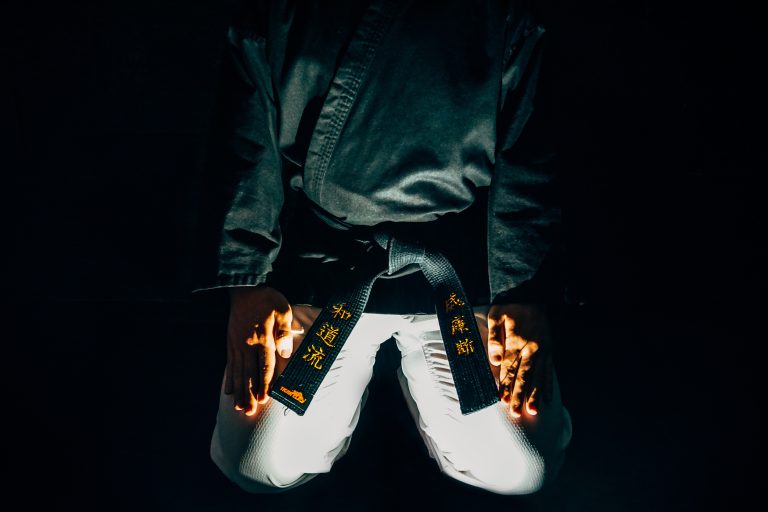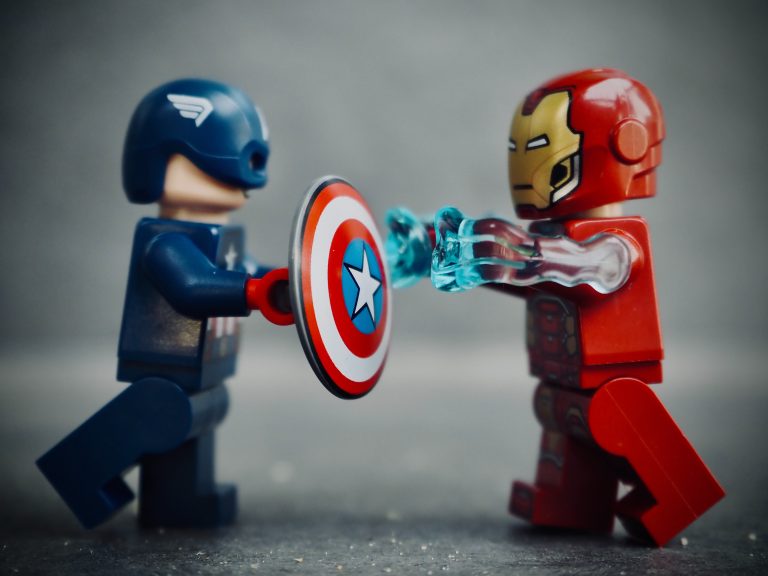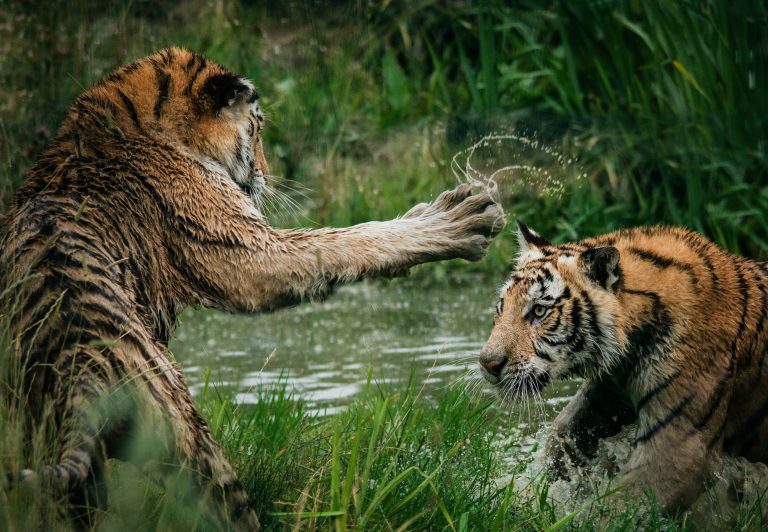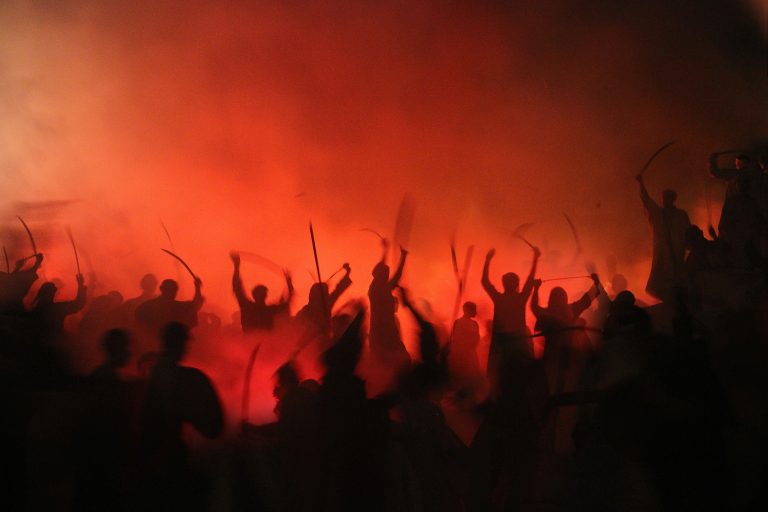Why Karate Kid is the Bad Guy: A Deeper Understanding of the Classic Film
Released in 1984, Karate Kid has become a cult classic film that has won over the hearts of millions of people worldwide. The film tells the story of Daniel LaRusso, a teenage boy who moves to a new town and faces all sorts of challenges, including standing up to his bullies with the help of his sensei, Mr. Miyagi. However, while the film may be considered a feel-good story, there are many reasons why Karate Kid is the bad guy in the movie. In this post, we’ll take a deeper look at the movie and explore some of the reasons why Daniel LaRusso is not the hero he appears to be.
The Origins of the Karate Kid Story
Before delving into the reasons why Daniel LaRusso is the bad guy in Karate Kid, it’s important to understand the origins of the story. The film was written by Robert Mark Kamen, who based the story on his own experiences. Kamen studied martial arts in college and, like Daniel LaRusso, was bullied as a child. However, unlike the film’s protagonist, Kamen did not seek revenge on his bullies through martial arts. Instead, he used his experience to create a story that would inspire others to stand up for themselves.
Daniel LaRusso: The Real Bully
One of the biggest arguments for why Daniel LaRusso is the bad guy in Karate Kid is that he is the real bully in the story. Throughout the film, Daniel is shown to be confrontational and aggressive towards his peers. He constantly picks fights with Johnny Lawrence and his Cobra Kai classmates, instigating altercations that ultimately lead to the film’s climax. Furthermore, Daniel does not seem to have any motivation other than vengeance. He doesn’t want to learn karate to better himself or become stronger, but rather to seek revenge on his bullies.
Mr. Miyagi: The Enabler of Violence
While Mr. Miyagi is often considered to be the film’s wise old teacher, he is arguably an enabler of violence. Throughout the movie, Mr. Miyagi teaches Daniel various techniques that are designed to cause pain and harm to his opponents. Even in the film’s climactic final battle, Mr. Miyagi allows Daniel to use an illegal kick to defeat Johnny. This sends a message that violence is an acceptable means of resolving conflicts, which is not a healthy message to impart to young viewers.
Johnny Lawrence: The True Victim
One of the most compelling arguments for why Karate Kid is the bad guy is that Johnny Lawrence is the true victim of the story. Johnny is repeatedly bullied by Daniel throughout the movie, yet he remains calm and composed until the very end. In fact, it is Daniel who instigates the violence that leads to their final confrontation. Furthermore, Johnny’s behavior can be explained by his abusive upbringing, which is hinted at in the film. He is shown to be deeply influenced by his sensei, who is a toxic influence on Johnny and the other members of Cobra Kai.
In
Introduction
When it comes to the movie „Karate Kid,“ most people would likely assume that Daniel LaRusso is the protagonist and Johnny Lawrence, the main antagonist. The movie plot follows the story of Daniel, a teenager from New Jersey, who moves to California with his mother and establishes himself in a new school where he attracts the attention of a gang of bullies, led by Johnny. With the help of Mr. Miyagi, he learns karate and eventually defeats Johnny in the tournament finals.
However, there is a growing argument that Daniel is not the hero of the story, but rather the true antagonist. In this blog post, we aim to answer some of the most frequently asked questions about why „Karate Kid“ is the bad guy.
Question 1: Wasn’t Johnny the bully who went too far?
While Johnny is undeniably a bully, it’s crucial to understand that his actions were merely a reflection of his environment. Johnny was born into a toxic and abusive household where his stepfather, Kreese, was a ruthless karate sensei who taught his students to be merciless and aggressive. Johnny, along with his fellow Cobra Kai students, was subjected to Kreese’s extreme punishments and can be seen flinching at the mere mention of his name.
On the other hand, Daniel, the supposed hero of the story, used insidious tactics to torment Johnny and his friends. He destroyed their Halloween costumes, poured water on them, and even provoked them to fight multiple times. It’s safe to say that Daniel’s actions were aggressive and provocative, which only escalated the situation.
Question 2: How does Mr. Miyagi fit into this?
Mr. Miyagi is often seen as the wise mentor who guides Daniel to victory. However, if we take a closer look at his actions, we can see that he is not without fault. He initially refused to teach Daniel karate because he saw it as a tool for violence and destruction. However, he later agrees to teach Daniel, not out of a sense of altruism, but rather because he wants to exact revenge on the Cobra Kai for injuring him.
Moreover, Mr. Miyagi’s teachings to Daniel are questionable. He doesn’t teach him how to fight but focuses on muscle memory and muscle control, which he suggests is the key to learning karate. While this method eventually helped Daniel win the tournament, it’s not a sustainable martial arts technique.
Question 3: But wasn’t Daniel the underdog in the movie?
The movie presents Daniel as an underdog, and it’s easy to sympathize with him. He’s a new kid in town, struggling to make friends, and fighting against a group of bullies. However, the reality is that Daniel was far from an underdog. He was an athletic and able-bodied teenager who was more than capable of standing up for himself. Furthermore, as mentioned earlier, he often provoked his harassers, which only escalated the situation.
Question 4: Does this mean we should sympathize with Johnny?
While Johnny is not blameless in the story, it’s important to note that he was a product of his abusive upbringing. One of the movie’s main messages is that people are more than what they seem on the surface, and everyone deserves a second chance. Johnny was a confused and angry teenager who was looking for guidance and direction, and unfortunately, he found it in Kreese.
In conclusion, while „Karate Kid“ may seem like a simple story of good versus evil, it’s essential to remember that the truth is rarely black and white. There are layers to every story and every character, and we should strive to understand each perspective before forming our judgments.
How to Understand why Karate Kid is the Bad Guy: A Step-by-Step Guide
Have you ever watched the classic martial arts film, Karate Kid, and wondered if the protagonist, Daniel, is actually the villain of the story? You’re not alone. The movie has inspired heated debates about whether or not Daniel is the true antagonist.
In this guide, we will explore the reasons why some argue that Daniel is actually the bad guy in Karate Kid. We will examine the evidence provided in the movie, as well as opinions from both sides of the debate. By the end of this guide, you will have a better understanding of the controversy behind Karate Kid.
Step 1: Watch Karate Kid
To fully understand the debate, you should watch the original Karate Kid movie. It’s essential to have a clear knowledge of the plot and characters in the film.
Step 2: Analyze the Characters
Once you’ve watched the movie, it’s time to start examining the characters. Many argue that Daniel is actually the antagonist of the story, while others believe he is the hero.
On one hand, Daniel moves to a new city and immediately starts causing trouble. He interferes with Johnny’s life, steals his girlfriend, and even cheats in the final karate tournament. In contrast, Johnny is seen as the victim of Daniel’s aggression. He never starts a fight with Daniel and only retaliates when provoked.
On the other hand, Daniel is portrayed as the underdog who triumphs over adversity. He also learns valuable life lessons about honor, respect, and perseverance. Johnny, meanwhile, is shown to be a bully who relies on his superior strength to intimidate others.
Step 3: Consider the Filmmakers‘ Intentions
Another important factor to consider is the filmmakers‘ intentions. While the movie has sparked a lot of debate, it’s essential to note that the filmmakers intended for Daniel to be seen as the hero of the story. This is evident in the way the film is shot, the music that accompanies Daniel’s victories, and the dialogue exchanged between the characters.
It’s important to remember that the filmmakers created the story of Karate Kid with a specific intention in mind. While viewers are free to interpret the movie in their own way, the director’s vision should be taken into account.
Step 4: Explore the Themes
Another factor to consider is the themes explored in Karate Kid. Part of the appeal of the film is the way it explores themes of redemption, forgiveness, and personal growth.
While Johnny may be portrayed as a bully, the movie also shows him to be a person with a difficult home life who struggles with anger issues. Conversely, while Daniel may not be perfect, he learns valuable lessons about respect, courage, and determination.
By exploring the themes of Karate Kid, you can gain a deeper understanding of the film’s message and how the characters fit into that message.
Step 5: Read Different Perspectives
To further your knowledge of the debate, it’s important to read different perspectives. With a simple internet search, you can find plenty of articles, forum discussions, and blog posts about the controversy surrounding Karate Kid.
Reading different perspectives will give you a better understanding of how others interpret the movie. You may even discover new arguments or evidence that you hadn’t considered before.
Step 6: Form Your Own Opinion
After watching the movie, analyzing the characters, considering the filmmaker’s intentions, exploring the themes, and reading different perspectives, it’s time to form your own opinion about the controversy.
You may find that you agree with one side of the debate more than the other. Alternatively, you may come to the conclusion that both Daniel and Johnny have their own strengths and flaws. Whatever your opinion, it’s important to back it up with evidence and well-reasoned arguments.
Conclusion
While the debate about Karate Kid may never be completely resolved, it’s important to consider all the factors involved and form your own opinion. By watching the movie, analyzing the characters, considering the filmmaker’s intentions, exploring the themes, and reading different perspectives, you can gain a deeper understanding of the controversy and what makes this film such a beloved classic.
Inhaltsverzeichnis






